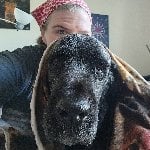Pre op process
My Pre Op Process
As part of getting approval from my insurance company, I needed to do the following things:
-
6 months of going to a doctor that will supervise your "weight loss," which in my insurance's case, didn't actually require me to lose any weight, but to show that a doctor told you what to do. I went to my surgeon for 6 months in a row, once a month.
-
A letter of clearance from a psychologist, who needs to do a full evaluation. This was done by a therapist associated with NYU. They made me fill out a bunch of questionnaires, and asked me personal questions.
-
A letter of clearance and recommendation from your primary care doctor. (known in medical parlance as "your PCP,") He/she needs to write a letter with your information (such as your BMI, how long they've been your doctor, any diseases you may have (known in medical parlance as " comorbidities", (which sounds really, really scary for no reason) etc.)
-
A consultation with a nutritionist, which I did through NYU.
Now once, I got clearance through the insurance company, (in my case, Health Republic of New York/Magnacare) I needed "Medical Clearance," which is a whole new set of requirements.
Here's that fun list:
-
A trip to the cardiologist (aka the heart doctor) which may include any of the following:
- An EKG , essentially a bunch of waves which tells the doctor whether or not your heart rate is elevated.
- An echocardiogram which is a sonogram of your heart (like the machine they use to look at the baby in a pregnant woman, except it's of your heart, and not the baby, and I'm a guy so...)
- An EKG , essentially a bunch of waves which tells the doctor whether or not your heart rate is elevated.
[*]A trip to the pulmonologist (aka the lung doctor) , who makes you do a breathing test to check for asthma or, more importantly, possible sleep apnea. (As an aside, my PCP made me do a sleep apnea test.)
[*]Pre op testing , which includes the following:
- An esophogram , which is an X-ray of your lungs and stomach area. They're looking for signs of breathing problems.
- A comprehensive blood test , to make sure that you're healthy. When I say comprehensive, I mean it. It looked for things I didn't even know existed.
- An extensive interview , to make sure they didn't miss anything the 5 other times they already asked all these questions. This took more time than the blood test, esophogram and miscellaneous administrivia combined.
I hope that this helps people. Please post comments below.












0 Comments
Recommended Comments
There are no comments to display.
Create an account or sign in to comment
You need to be a member in order to leave a comment
Create an account
Sign up for a new account in our community. It's easy!
Register a new accountSign in
Already have an account? Sign in here.
Sign In Now